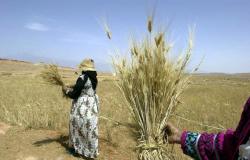In the three countries of the AES, the activities of the political parties are either suspended or threatened with suspension. It is in this climate of political tension that hundreds of people demonstrated on Saturday and Sunday in Bamako at the call of a coalition of political parties.
They intended to denounce the threats that hover over political life and freedoms. But if the political opposition moves in Mali, this is not the case in Niger and Burkina Faso, where political actors seem to be entrenched in a kind of resignation and fear.
The opposition wakes up in Mali
If in Mali, the coalition of political parties attempts to face military power, this is partly due to the military transition which lasted longer in this country. Because, it has been more than four years since Assimi Goïta took power by a coup.
Thus, in Bamako, the movements of distrust multiply with regard to the military authorities. A hundred political parties grouped within the IPAC, the initiative of political parties for the Charter, also calls for a great mobilization this Friday at the emblematic Place de la Liberté.
The organizers of the demonstration intend to be heard through messages in the sense of respect for the constitution and the return to constitutional order and therefore the end of the transition.
“Our objective is clear: to affirm our attachment to respect for the constitution, to democracy and fundamental freedoms. This mobilization is national with simultaneous actions provided for in regions, circles and municipalities. We want to challenge the authorities on unilateral decisions, in particular procedures aimed at dissolving political parties”, explains Fouraba Samaké, of the party for civic and patriotic action.
“It is a well -organized, supervised manifestation, without provocation, with a strong but responsible message. We demand an electoral calendar of legitimate institutions, and respect for the rights of citizens is not a confrontation, but it is a democratic requirement.”
Terror in Burkina Faso …
The requirement of respect for the rights of citizens has become a quest that we speak very little or at least publicly in political parties and civil society organizations opposed to the extension of the military transition to Burkina Faso. At least that’s what this Burkinabè explains to us who preferred to express themselves in anonymity.
Democracy in AES countries (Special program)
-To play this audio please enable JavaScript, and consider upgrading to a web browser that supports HTML5 audio
“It is certain that there are concerns, we deplore the situation, but hey, what can we do, for the moment? Today in Burkina, even on the phone, people no longer speak”, he assures the microphone of the DW.
“Me, I have knowledge that has been arrested for 2 years, 3 years, we do not know where they are. It is total distrust, it is really quite complex. I do not think there are many who will dare to give their sincere opinion on the situation.”
… and in Niger
In Niger also, since the military coup, several political organizations have already been dissolved and the activities of the suspended political parties.
Sahanine Mahamadou, ex-advisor of the fallen Nigerian President Mohamed Bazoumre comes on this situation.
“C‘is true, it moves much more in Mali than in Niger. But for the specific case of Niger, reason is that in Niger, it is not a coup, it is a plot. It is former President Issoufou Mahamadou who is the basis of this coup d’etat “, he says.
“In Niamey, those who supported the coup, it was the militants of Lumana, traditionally opposed, the opposition of our movement.“
In Niger, Burkina Faso and Mali, the military regimes that seem to be in power in power to repress the activities of all political parties that oppose their maintenance in power.
According to the latest report on the press freedom of reporters Without Borders (RSF), freedom of expression has greatly fell into these three countries.








